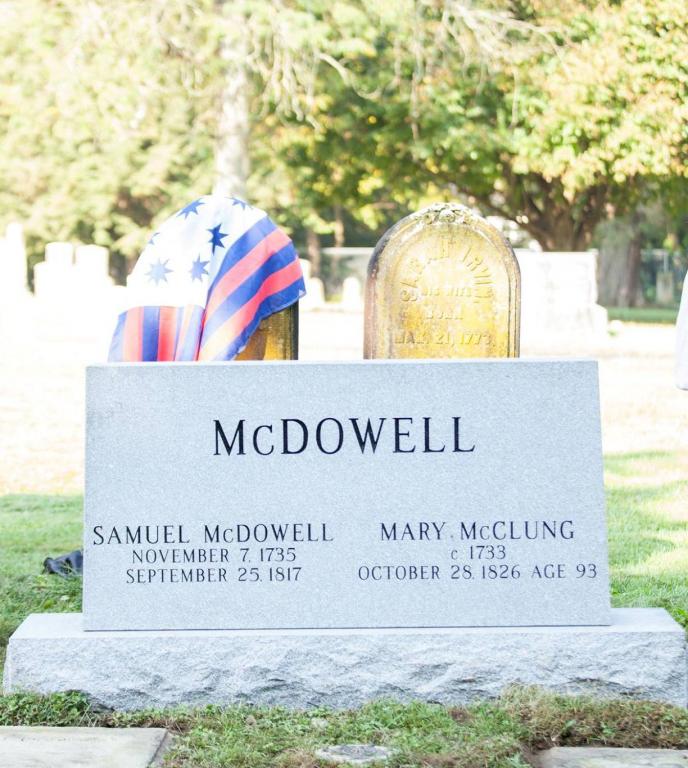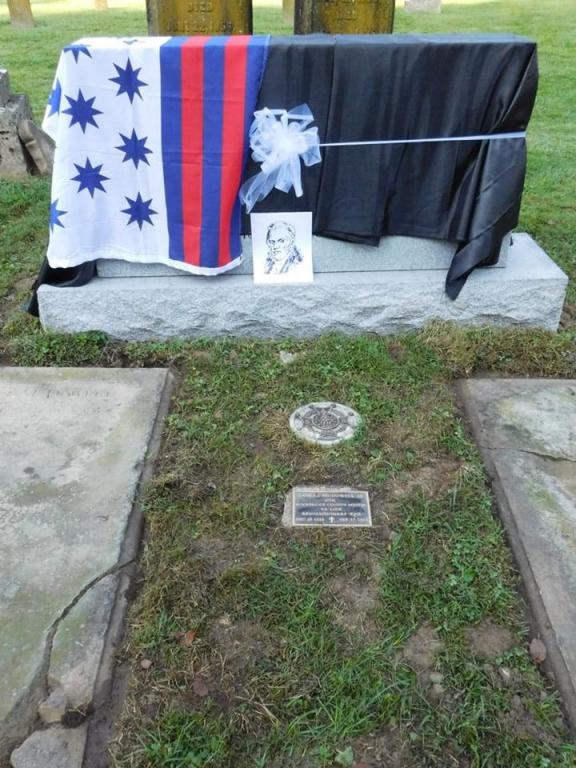Samuel MCDOWELL Sr
SAR Patriot #:
P-246160
The following information was assembled from numerous sources and cannot be used directly as proof of Qualifying Service or Lineage.
It is considered a research aid and is intended to assist in locating sources that can be used as proof.
State of Service: VA
Qualifying Service: Colonel / Patriotic Service / Civil Service
DAR #: A076518
Birth: 27 Oct 1735 / / PA
Death: 25 Sep 1817 nr Danville / Mercer / KY
Qualifying Service Description:
- Officer at the Battle of Guilford Court House, March 1781
- Colonel, also Major, Augusta Co, VA Militia 1777
- Colonel, Rockbridge Co Milita 1778
- Justice of the Peace, Augusta Co 1775-1778, Rockbridge Co 1778
- Member of Assembly, 1775-1776
- Member of Convention, 1775-1776
- Ordered to take list of Tithables
- DAR cites: Member of the House of Delegates
Additional References:
- DAR Patriot Index, 1966,pg 453
- GWATHMEY, HIST REG OF VA IN THE REV, pg 524
- WADDELL, ANNALS OF AUGUSTA CO VA, pg 121
- NSDAR RC: 797899 & 758859 cites
- Creel, Selected VA Rev War Recs, Vol 2, pg 7
- Rockbridge Co VA orders Book 1, pg 1-2, FHL Roll #33779
- Creel, Augusta Co VA Court Orders pg 33, 35, 45-46, 51-53, 55, 57, 59, 65-66, 70-71, 75, 81, 86-88, 98-99
- Stanard & Stanard, Colonial VA Register, pg 197, 198, 201, 203, 205, 207
Spouse: Mary McClung;
Children: Samuel Jr; Joseph; William Adair; Mary; Elizabeth; James; Caleb Wallace; Magdalena/Magdalin/Magdalene; Ephraim B; Martha; John;
Members Who Share This Ancestor
| Date Approved | Society | ACN | SAR Member Info | Lineage via Child | View Application Detail | |
|---|---|---|---|---|---|---|
| 1942-01-08 | DC | Unassigned | Robert Von Pagenhardt (60783) | Samuel | ||
| 1968-09-26 | KY | Unassigned | James Warren Nielsen (97408) | Samuel | ||
| 1972-01-25 | FL | Unassigned | William Hughes Cunningham (102666) | James | ||
| 1976-06-23 | TX | Unassigned | John A Hord (111025) | Joseph | ||
| 1985-02-08 | VA | Unassigned | Sidney T Telford Jr (118225) | Ephraim | ||
| 1985-04-25 | VA | Unassigned | James Lawrence Meem Jr (119629) | Ephraim | ||
| 1995-09-01 | PA | 208452 | Wallace Mcdowell Shelby (142706) | |||
| 1997-11-12 | TX | 200567 | William Foster Jacoby Jr (149211) | Samuel | ||
| 2008-07-11 | NY | 32127 | Robert John Gang III (171999) | Joseph | ||
| 2013-03-21 | AL | 52363 | Herman Hoffman Birney III (186708) | William | ||
| 2015-11-04 | CA | 66101 | Jeffrey Howard Brown (176154) | James | ||
| 2025-02-07 | NC | 115175 | John Von Rohr (232600) | James |
Location:
Danville / Boyle / KY / USA
Find A Grave Cemetery #:
Marker Type:
SAR
SAR Grave Dedication Date:
20 Oct 2013, Marked again 23 Sep 2017
Comments:
horizontal stone with SAR marker
Directions to Cemetery / Gravesite:
Additional Information:
DARA NOTE -EL - NO DOCUMENTATION TO PROVE ELIZABETH AS A DAUGHTER OF THIS ANCESTOR



